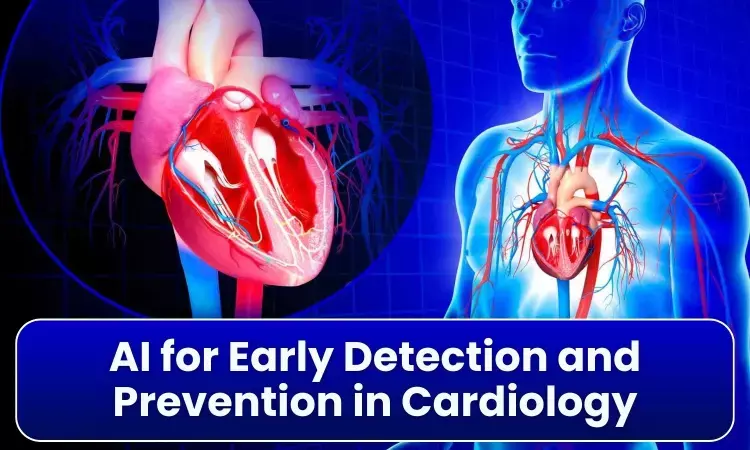- Home
- Medical news & Guidelines
- Anesthesiology
- Cardiology and CTVS
- Critical Care
- Dentistry
- Dermatology
- Diabetes and Endocrinology
- ENT
- Gastroenterology
- Medicine
- Nephrology
- Neurology
- Obstretics-Gynaecology
- Oncology
- Ophthalmology
- Orthopaedics
- Pediatrics-Neonatology
- Psychiatry
- Pulmonology
- Radiology
- Surgery
- Urology
- Laboratory Medicine
- Diet
- Nursing
- Paramedical
- Physiotherapy
- Health news
- Fact Check
- Bone Health Fact Check
- Brain Health Fact Check
- Cancer Related Fact Check
- Child Care Fact Check
- Dental and oral health fact check
- Diabetes and metabolic health fact check
- Diet and Nutrition Fact Check
- Eye and ENT Care Fact Check
- Fitness fact check
- Gut health fact check
- Heart health fact check
- Kidney health fact check
- Medical education fact check
- Men's health fact check
- Respiratory fact check
- Skin and hair care fact check
- Vaccine and Immunization fact check
- Women's health fact check
- AYUSH
- State News
- Andaman and Nicobar Islands
- Andhra Pradesh
- Arunachal Pradesh
- Assam
- Bihar
- Chandigarh
- Chattisgarh
- Dadra and Nagar Haveli
- Daman and Diu
- Delhi
- Goa
- Gujarat
- Haryana
- Himachal Pradesh
- Jammu & Kashmir
- Jharkhand
- Karnataka
- Kerala
- Ladakh
- Lakshadweep
- Madhya Pradesh
- Maharashtra
- Manipur
- Meghalaya
- Mizoram
- Nagaland
- Odisha
- Puducherry
- Punjab
- Rajasthan
- Sikkim
- Tamil Nadu
- Telangana
- Tripura
- Uttar Pradesh
- Uttrakhand
- West Bengal
- Medical Education
- Industry
Evaluating AI's Role in Early Detection and Prevention in Cardiology: Latest Systematic Review Published in JACC Advances

Across multiple randomized controlled trials, Artificial Intelligence (AI) interventions consistently proved effective as frontline screening and preventive tools in cardiology, accelerating the identification of high-risk patients and increasing diagnostic rates for critical conditions like low Ejection Fraction (EF) and cardiomyopathy. This demonstrates AI’s clear potential to drive timely, targeted interventions.
The findings, based on a systematic review of RCTs evaluating AI in Cardiovascular Care, was published in the Journal of the American College of Cardiology: Advances (JACC Adv.).
Early detection and prevention are cornerstones of cardiovascular medicine, yet traditional screening methods can be labor-intensive and miss subtle indicators of risk. AI’s ability to analyze vast ECG and imaging data sets provides a unique opportunity for scalable, accurate risk stratification. To validate this potential, a systematic review focused specifically on RCTs addressing AI in early detection and prevention.
The systematic review analyzed data from major databases through November 2024. Seven of the 11 included RCTs examined the domain of early detection and prevention. These trials compared machine learning models against traditional care, with outcomes centered on early diagnosis, subsequent intervention, and patient-important metrics like mortality.
AI interventions consistently improved diagnostic rates and accelerated the identification of high-risk patients across diverse clinical settings. ECG-based algorithms significantly enhanced detection rates:
• In one trial, AI-ECG alerts for low EF in primary care led to a higher diagnosis rate of low EF (2.1% vs 1.6%) and significantly increased subsequent echocardiography utilization.
• An AI-ECG alert for high mortality risk in hospitalized patients resulted in a significant 90-day all-cause mortality reduction (3.6% vs 4.3%; HR: 0.83), which was accompanied by increased ICU admissions and echocardiography use, indicating timely intervention.
• Opportunistic AI screening of non-gated chest CTs for Coronary Artery Calcium (CAC) led to a significant increase in statin prescriptions (51.2% vs 6.9%) and more downstream CAD testing.
Furthermore, AI-guided screening for peripartum cardiomyopathy detected LV systolic dysfunction in 4.1% of women versus 2.0% in the control group.
These consistent benefits confirm AI’s clear value in risk stratification and early intervention.
Insights for Cardiovascular Medicine Stakeholders
For practicing cardiologists, AI tools are proven to function as an effective frontline screening mechanism, identifying patients with subtle, clinically significant cardiac conditions who might otherwise be overlooked. The ability of AI to promptly trigger necessary, resource-intensive actions—like ICU admission or starting statin therapy—translates directly to better patient outcomes and supports the initiation of timely, targeted downstream testing and therapy.
Reference: Hadida Barzilai D, Sudri K, Goshen G, Klang E, Zimlichman E, Barbash I, Cohen Shelly M. Randomized Controlled Trials Evaluating Artificial Intelligence in Cardiovascular Care: A Systematic Review. JACC Adv. 2025 Sep 24;4(11 Pt 1):102152. doi: 10.1016/j.jacadv.2025.102152. Epub ahead of print. PMID: 40997553; PMCID: PMC12506480.
Dr Prem Aggarwal, (MD Medicine, DNB Medicine, DNB Cardiology) is a Cardiologist by profession and also the Co-founder and Chairman of Medical Dialogues. He focuses on news and perspectives about cardiology, and medicine related developments at Medical Dialogues. He can be reached out at drprem@medicaldialogues.in


